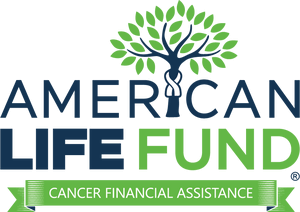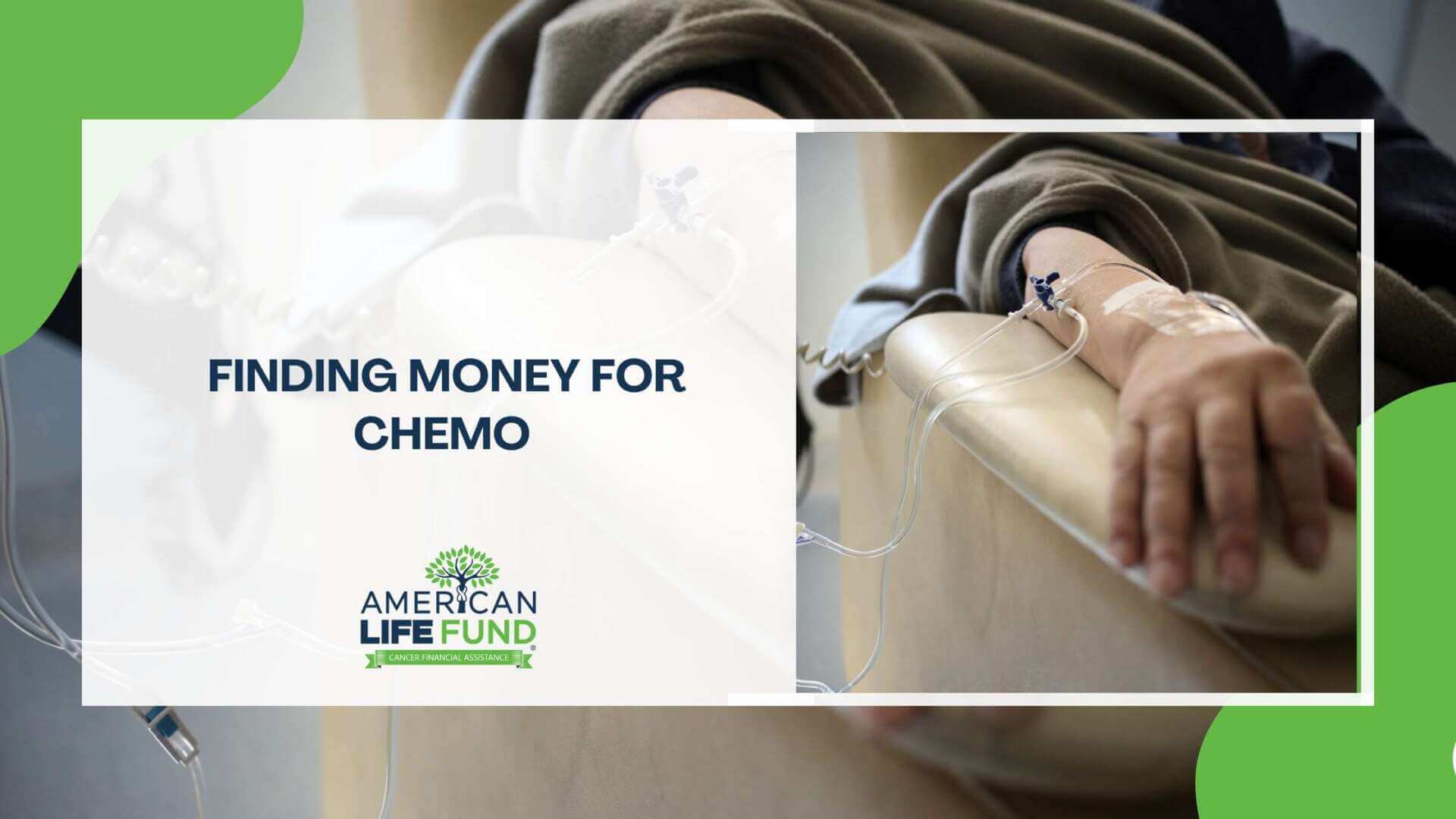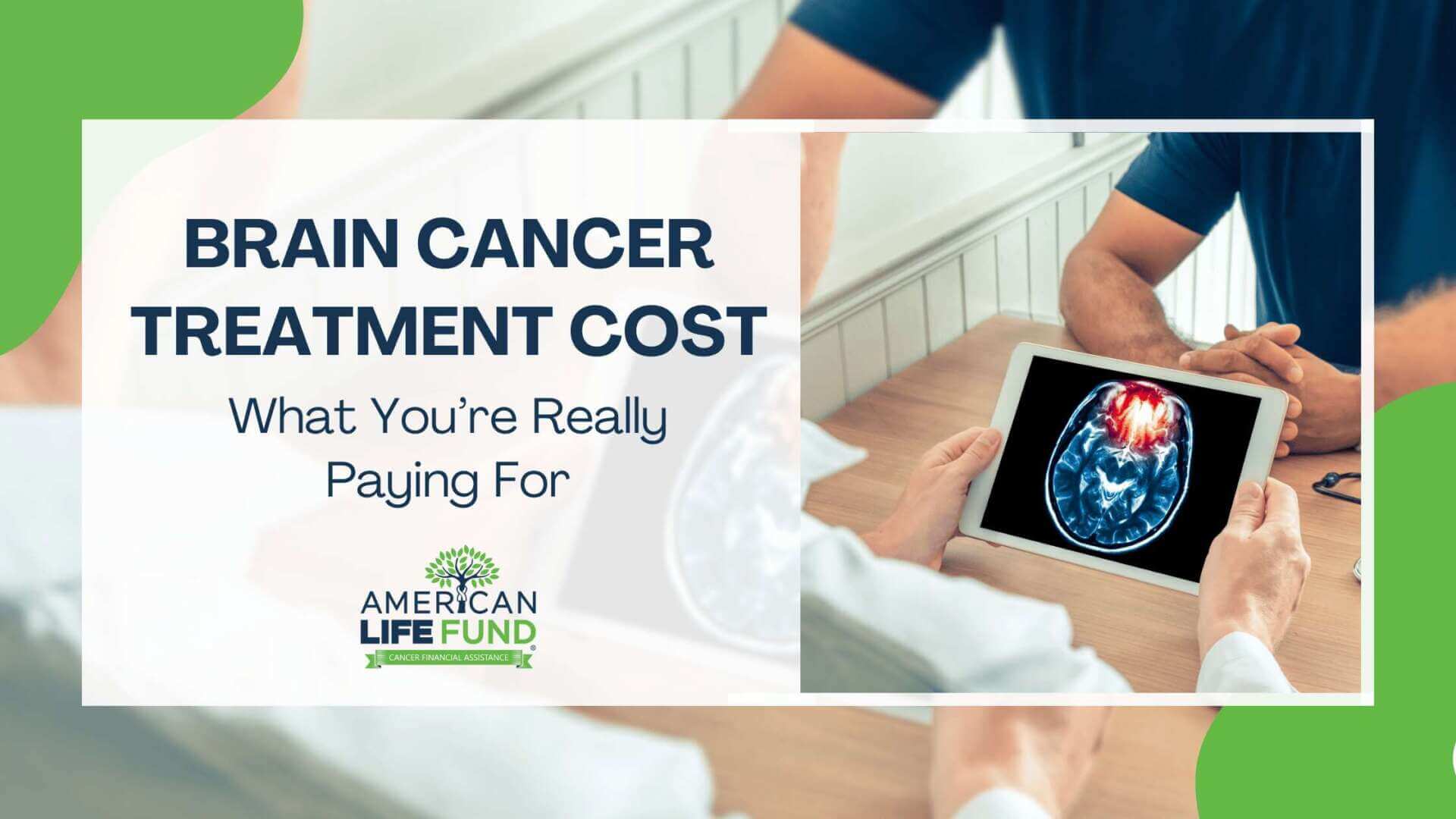The cost of cancer treatment can be staggering, even for those with health insurance coverage. Between medical bills, prescription drugs, co-payments, and out-of-pocket expenses, many patients find themselves facing serious financial challenges just to afford the care they need.
For some, the financial stress sets in quickly – missing work, juggling insurance premiums, or struggling to keep up with everyday expenses while focusing on treatment. Research shows that cancer patients are 2.5 times more likely to file for bankruptcy than those without cancer.
But financial help is available. This guide will walk you through financial assistance programs, nonprofit organizations, government benefits, and other resources that can help ease the cost of cancer care. We’ll also cover alternative funding solutions like viatical settlements, which allow patients to access funds from their life insurance policy to help cover treatment, living expenses, and other financial needs.
If you’re searching for ways to afford cancer therapy, know that you’re not alone. There are options, and this guide will help you find them.
How Much Does Cancer Treatment Cost?
Cancer treatment costs vary widely depending on the type of cancer therapy, the stage of the disease, and whether the patient has health insurance coverage. Even with insurance, many patients face out-of-pocket costs that strain their family income.
Average U.S. Income vs. Cost of Cancer Care
- The average full-time worker in the U.S. earns $4,400 per month before taxes.
- Some chemotherapy and immunotherapy infusions cost nearly one-third of that amount per session.
- Even with health insurance, a patient with 25% coinsurance may pay $2,500 per month for a cancer drug priced at $10,000.
Estimated Yearly Out-of-Pocket Spending
For many, these costs add up fast:
- Nearly 20% of cancer patients and their families report spending more than $20,000 per year on treatment-related expenses.
- Cancer patients pay a total of $16 billion out-of-pocket annually for their medical treatment.
- The average cost of newly approved cancer drugs has risen to $283,000 per year, a 53% increase since 2017.
These figures highlight the financial strain that many cancer patients face. While government programs, nonprofit organizations, and patient assistance programs can help, gaps in insurance coverage often leave patients searching for additional financial support.
How Cancer Treatment Can Cause Financial Hardship
The financial toll of cancer treatment can set in quickly, often within months of a cancer diagnosis. Between out-of-pocket expenses, insurance premiums, and medical bills, many patients and their families find themselves making difficult financial decisions, sometimes choosing between paying for treatment and covering everyday living costs.
Rising Out-of-Pocket Medical Costs for Patients with Advanced Cancer
- Cancer is one of the most expensive illnesses to treat in the U.S.
- Patients and their families often face additional non-medical costs, such as travel expenses to treatment centers and short-term housing near hospitals.
- Some families must choose between paying for cancer care and affording essentials like rent, groceries, and utilities.
Financial Hardship Can Begin Soon After Treatment Starts
A recent study found that 71% of cancer patients experience financial hardship within the first year of treatment. This can mean:
- Accumulating medical debt
- Borrowing money from family or friends
- Selling assets, such as a home or car
- Experiencing a 20% or greater decline in income due to missed work
For many, these financial struggles don’t just impact their wallets, they also take a toll on their mental and emotional well-being. Stress over financial challenges can make it even harder to focus on healing.
How to Use Health Insurance for Cancer Treatment
Health insurance plays an important role in covering cancer treatment, but even with a good plan, patients often face high out-of-pocket expenses. Understanding your insurance coverage and knowing how to handle the claims process can make a significant difference in managing the financial burden.
Understanding Health Insurance Options for Cancer Patients
Not all health insurance plans cover the full cost of medical treatment. It’s important to understand what your plan includes and explore alternative options if needed:
- Employer-Sponsored Insurance – Many patients rely on workplace health insurance coverage, but high co-payments, deductibles, and out-of-pocket costs can still be a challenge.
- Medicare and Medicaid – Medicare patients (65+ or disabled) and those with Medicaid (low-income individuals) may qualify for financial assistance to cover cancer care.
- Affordable Care Act (ACA) Plans – The Affordable Care Act requires insurers to cover essential benefits, including cancer therapy, but insurance premiums and co-payments vary widely.
Some health insurance companies offer limited financial assistance for cancer patients, so it’s worth asking about special programs that could reduce costs.
Managing Health Insurance Claims and Billing
Dealing with health insurance claims can be frustrating, but knowing your rights can help:
- Work with a social worker or patient navigator – Professional oncology social workers can help you understand your benefits, file claims, and appeal denied coverage.
- Keep track of medical bills – Review your statements to ensure you aren’t overcharged for medical supplies, radiation therapy, or hospital visits.
- File an appeal if necessary – If a claim is denied, don’t give up. Many insured patients successfully appeal to their health insurance company to get treatments covered.
Financial Assistance for Cancer Patients
Even with health insurance, many cancer patients struggle to afford treatment due to out-of-pocket costs. Thankfully, a variety of financial assistance programs exist to help cover medical treatment, prescription drugs, and travel expenses.
American Cancer Society Resources for Financial Assistance
The American Cancer Society offers several programs to support patients facing financial hardship, including:
- Hope Lodge – Free housing for patients who need to stay near treatment centers.
- Road to Recovery – Free rides to and from medical appointments for those who can’t drive themselves.
- Patient Assistance Programs – Various grants and support services for those struggling with medical bills.
Government Programs for Cancer Patients
- Medicaid & Medicare – These government programs provide insurance coverage for low-income individuals, seniors, and those with disabilities.
- Social Security Disability Insurance (SSDI) – Patients who can’t work due to cancer therapy may qualify for financial benefits.
- Supplemental Security Income (SSI) – Offers monthly payments for eligible low-income individuals with cancer.
Nonprofit Organizations Offering Financial Assistance
Many nonprofit organizations provide financial relief beyond what health insurance companies cover:
- CancerCare – Helps with co-payments, travel expenses, and medical supplies.
- The Leukemia & Lymphoma Society – Offers grants to help with out-of-pocket expenses.
- United Way – Connects patients with local resources for financial help.
How Viatical Settlements Provide Immediate Financial Relief
For those facing financial hardship, a viatical settlement can provide immediate relief. This allows cancer patients to sell their life insurance policy for a lump sum of cash, which can be used for treatment, living expenses, and other financial needs. Unlike loans or traditional financial assistance programs, viatical settlements provide unrestricted funds that patients can use however they see fit.
Financial Assistance for Daily Expenses & Support
Financial assistance goes beyond just paying for cancer treatment. Many cancer patients need help with daily expenses, caregiver support, and transportation to medical appointments. Fortunately, several programs offer practical financial support.
Help with Short-Term Housing Near Treatment Centers
For patients who need to travel for medical treatment, finding affordable lodging can be a challenge. These resources can help:
- Hope Lodge (American Cancer Society) – Provides free housing for patients and their family members near participating treatment centers.
- Joe’s House – A nonprofit that helps patients find discounted lodging near hospitals.
- Ronald McDonald House – Supports families with children undergoing cancer treatment.
Help with Caregiver Expenses
Caregivers often miss work or take on extra costs when supporting a loved one through cancer therapy. Some programs that provide financial assistance for caregivers include:
- Cash & Counseling Programs – Available in some states, these programs provide direct payments to caregivers.
- Veterans Affairs (VA) Caregiver Support – Offers stipends to caregivers of qualifying veterans undergoing cancer care.
Help with Transportation Costs
Getting to and from treatment centers can be expensive, especially for those traveling long distances. These services can help:
- Road to Recovery (American Cancer Society) – Free rides for patients who need help getting to medical appointments.
- Medicaid Non-Emergency Medical Transportation – Provides transport for eligible Medicaid patients.
- Local Resources & Nonprofit Organizations – Many hospitals and local health departments have programs that offer financial support for transportation.
How Cancer Patients Can Get Help with Food Costs
Eating well during cancer treatment is essential, but the cost of nutritious food can be staggering, especially for those on a tight budget. Several financial assistance programs provide food support to patients and families.
Supplemental Nutrition Assistance Program (SNAP)
- SNAP offers monthly financial support to help low-income individuals buy groceries.
- Patients can apply through their local health department or social services office.
Meals on Wheels
- Provides ready-to-eat meals to homebound cancer patients, seniors, and individuals with disabilities.
- The cost varies based on location and family income, some patients qualify for free meals.
For those struggling to cover food expenses, nonprofit organizations and government programs can make a significant difference.
State Programs That Help Cover Cancer Treatment
In addition to national programs, many states offer financial assistance specific to cancer patients. These programs may include:
- State Medicaid Programs – Some states have expanded Medicaid to provide health insurance for more low-income individuals.
- Temporary Assistance for Needy Families (TANF) – Offers cash assistance to families in financial crisis.
- State-Specific Cancer Aid Programs – Many states have grants that help cover medical bills, transportation, and housing costs.
Patients should contact their local health department or work with a social worker to find local resources that can provide assistance.
How American Life Fund Can Help You Right Now
The reality is that while government programs, nonprofit organizations, and patient assistance programs offer financial help, they often come with strict eligibility requirements, long wait times, or limited funding. If you need financial relief right now, a viatical settlement can provide a fast and flexible solution tax free!
A viatical settlement allows you to sell your life insurance policy for an immediate cash payout, which you can use however you need – whether it’s covering cancer treatment, prescription drugs, medical bills, or everyday expenses like housing and food. Unlike loans or credit cards, a viatical settlement is not debt – it doesn’t require repayment, and there are no restrictions on how you use the money.
Many cancer patients use viatical settlements to:
- Pay for out-of-pocket medical expenses that insurance won’t cover
- Reduce financial stress so they can focus on healing
- Afford specialized treatments or second opinions
- Cover living expenses after taking time off work
- Avoid draining savings or retirement funds
At American Life Fund, we specialize in helping cancer patients access the money they need, when they need it, through viatical settlements. We know that time is precious, and we work quickly to get you the highest possible payout for your policy.
See How Much You Qualify For
If you’re facing financial challenges due to cancer treatment, American Life Fund is here to help. A viatical settlement can provide immediate financial relief, allowing you to focus on your health and well-being. Call us at (877) 261-0632 or check here to see immediately if you qualify.
How to Find the Best Financial Aid for Cancer Care
The cost of cancer treatment can add significant stress, but support is available to help. You may be able to manage costs through options such as:
- Government programs like Medicaid, Medicare, and Social Security benefits
- Nonprofit organizations that offer grants, housing, and transportation assistance
- Patient assistance programs from pharmaceutical companies
- Local resources through hospitals and social workers
If you’re struggling with out-of-pocket expenses, it’s important to explore all available options. Many programs can help reduce costs, but they may not cover everything, and some come with long waiting periods or strict qualifications.
For patients who need immediate financial relief, a viatical settlement can provide the flexibility to pay for treatment and focus on your health and well-being.
No matter what financial route you choose, remember: help is available. You don’t have to figure this out alone.





